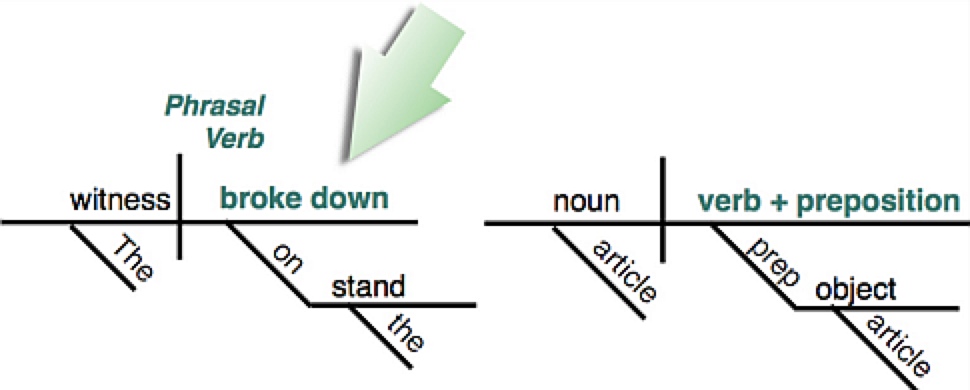
Karl J Sherlock
Associate Professor, English
Email: karl.sherlock@gcccd.edu
Phone: 619-644-7871

"Phrasal" means, "expressed as a phrase." "Combinative" means, "tending to combine with other elements." Therefore, phrasal verbs "combine" base verbs and other words (prepositions, usually) into a phrase that acts as one verb.
Some examples:
[There are two other phrasal verbs in this sentence. What are they?]
If these terms feel to you somewhat clumsy and made-up, that's because they are. Technically speaking, phrasal verbs aren't "good" verbs. They stand apart from the rules of grammar. However, they're commonly used in everyday English, informal speech, character dialogue. Phrasal verbs help to make things sound like natural speech, not grammatically correct English, which makes them a potential concern about tone.
Even though virtually all of the words added to base verb are prepositions, enough exceptions exist to warrant a less specific term like "Prepositional Verbs." (Visit "Unusual Prepositional: Prepositional Verbs" for an explanation of why such verbs are not legitimate.) Therefore, words combined with the base verbs are referred to as the "particle" (Yep, you spotted it: "referred to" is another example of a phrasal verb.) Each of the underline words in the examples on this page is a particle in a phrasal verb.
In the examples above, the phrasal verbs are transitive: they all take a direct object. Phrasal verbs, however, can also be intransitive:
Phrasal verbs are considered to be informal, and in formal writing they should be strictly avoided:
Diagramming phrasal verbs is no different from diagramming any other verb: the base verb and its preposition are kept together:

Karl J Sherlock
Associate Professor, English
Email: karl.sherlock@gcccd.edu
Phone: 619-644-7871

8800 Grossmont College Drive
El Cajon, California 92020
619-644-7000
Accessibility
Social Media Accounts